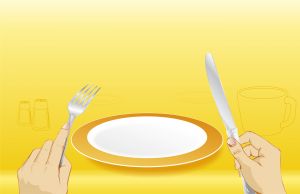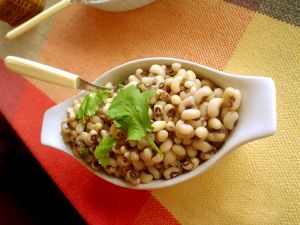Cooking on a Small Budget
Your pantry is empty and every week payday comes and you have next to nothing to spend on food.
 The details of how you got to this point don't matter. You could have gotten here through unemployment or underemployment, or divorce, a personal tragedy, a thieving relative, or a bad decision. Life is tough and sometimes we end up in places we don't want to be - places we never thought we would be in at all. You have the emotional burden of dealing with the problems that got you there, and the very pressing issue of feeding yourself and perhaps even your family.
The details of how you got to this point don't matter. You could have gotten here through unemployment or underemployment, or divorce, a personal tragedy, a thieving relative, or a bad decision. Life is tough and sometimes we end up in places we don't want to be - places we never thought we would be in at all. You have the emotional burden of dealing with the problems that got you there, and the very pressing issue of feeding yourself and perhaps even your family.
Faced with such a situation many people will only deal with their immediate needs - the next meal. It's easy to ignore the rest of the week. Cross that bridge when you come to it, right? So they'll head off to a fast food place and buy something cheap. For $5 or so they will have a meal, never even considering the fact that same $5 could feed them for a week if they spent it in a grocery store.
The cheapest way to feed yourself for a week is to buy a bag of rice and a bag of dried beans. Plain rice and beans is survival food. No one will try to pass it off as a delicious gourmet dish. But when you lack money and need to eat, rice and beans will fill your stomach and provide you with the nutrition you need to make it until the next payday - all for the cost of ONE meal at a fast food restaurant. If you have an ethnic grocery near you, you're in luck. Food staples are usually much cheaper in ethnic grocery stores. You may be able to get a bag twice the size of what the supermarket sells, for the same price.
I had my month of rice and beans a decade ago.
Before my personal SHTF experience, I was a typical suburban mom. I went to the supermarket and bought food when I needed it. Whatever the cashier rang up was what it cost. I didn't clip coupons or shop around, or even have a budget. I was not accustomed to having to live within a budget.
Then, things changed. I was suddenly alone with two children and only $30. per week to spend on food.
 The first week I spent $15 on a few basic vegetables, flour, butter, milk, eggs, oatmeal, one cheap roasting chicken, a big bag of dried beans and a bag of rice. I partially boiled the chicken for broth, then roasted it and used the drippings for gravy, then picked the meat off the bones. I tossed vegetable peels in with all of the picked clean chicken bones, and roasted them slowly to a nice mahogany brown, then covered it all with water and gently simmered to make stock. I squeezed every drop of flavor I could out of that chicken. I measured out exactly the amount of flour needed for noodles, pie crusts, and bread. The children had chicken and dumplings, chicken pot pie, chicken noodle soup, chicken and rice soup, chicken with veggies and gravy over rice, open faced chicken sandwiches... Do you see a theme here?
The first week I spent $15 on a few basic vegetables, flour, butter, milk, eggs, oatmeal, one cheap roasting chicken, a big bag of dried beans and a bag of rice. I partially boiled the chicken for broth, then roasted it and used the drippings for gravy, then picked the meat off the bones. I tossed vegetable peels in with all of the picked clean chicken bones, and roasted them slowly to a nice mahogany brown, then covered it all with water and gently simmered to make stock. I squeezed every drop of flavor I could out of that chicken. I measured out exactly the amount of flour needed for noodles, pie crusts, and bread. The children had chicken and dumplings, chicken pot pie, chicken noodle soup, chicken and rice soup, chicken with veggies and gravy over rice, open faced chicken sandwiches... Do you see a theme here?
 I ate rice and beans. Breakfast, lunch and dinner. What it lacked in flavor it more than made up for in promise. This lowly dish was my path out of food poverty.
I ate rice and beans. Breakfast, lunch and dinner. What it lacked in flavor it more than made up for in promise. This lowly dish was my path out of food poverty.
The next week I had $30 plus the $10 I had saved. WOOT! Week #2, ham was the meat of the week, and I bought a few spices, and sugar, but I basically ate that same diet of rice and beans - and once again spent only $20 out of my budget, saving another $10. The next week I introduced my children to Tuscan bean soup, baked beans, and pasta with beans, and saved yet another $10. By the end of the month I had a fairly decent amount to spend on food. Then the light went on.
It's not the amount you EARN, it is the amount you SPEND.
How could I spend LESS on the food we needed, so I would have more money in my pocket? Why, coupons and sales, of course! I stopped by the local coffee shop late every afternoon and picked up the discarded newspapers for the coupons inside. I waited for the monthly sales and 2x coupons, and walked out of the supermarket with $160 in groceries for $60.
That food fed us for the next month, and I had a lot left over. That meant I had my entire month's food budget in hand. I didn't go back to shopping as normal. I had created a new normal. With meal planning, careful shopping and couponing, and a lot of home cooking, I saved substantially on the cost of the food we ate. I had more money for other things - and at that point those things were all necessities. When it came to spending my food dollars, my emphasis turned from filling our bellies to improving nutrition, especially since I had young children and come from a family with a history of cancer and heart disease. I wanted to give my children a good foundation and protect my own health from the effects of all the non-food ingredients in processed foods.
When it came to spending my food dollars, my emphasis turned from filling our bellies to improving nutrition, especially since I had young children and come from a family with a history of cancer and heart disease. I wanted to give my children a good foundation and protect my own health from the effects of all the non-food ingredients in processed foods.
That is when I began "prepping". This is a new term for something very old - building up your pantry with basic staples that have an extremely long shelf life when times are good, in order to tide you over when times are bad. This is how our grandparents and every generation before them lived. They had to. There were no social safety nets to save them from malnutrition and the illnesses that go along with depleting the body's resources. Their preps were not stashed away for a rainy day. They were a living, breathing part of their kitchen. When food was in season and cheap, they ate fresh food while they loaded their pantries with goodness. Then when the winter came, or a natural or personal disaster struck, they turned to their pantries and made their meals from stored ingredients.
Many of the foods we love today were developed as ways to preserve the harvest when it came in - pasta, cheese, yogurt, jerky, pickles, sauerkraut, kimchi, jellys and jams, soda, wine, beer, salted hams and smoked meat and fish, roasted nuts, raisins, sun dried tomatoes, apple chips, popcorn, and everything that comes in a can, was first made to stock a pantry. Refrigerators and freezers were invented to preserve fresh food so we could eat it later.
How ironic it is that after a full history of mankind seeking better ways to preserve food and people proudly showing off their well stocked pantries, we now ship our food thousands of miles so we can eat it fresh and the average household in the US has less than 3 days food on hand - even though most of us live paycheck to paycheck.
What a recipe for disaster!
These days my pantry is always full. I call it my insurance policy.... and yes, I DO have lots of rice and beans in there.

